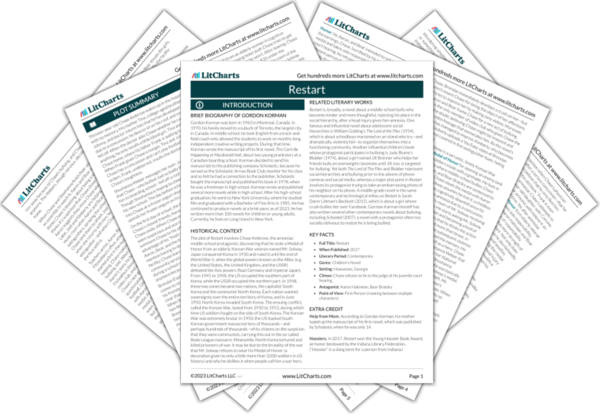When Chase reveals his amnesia, Aaron and Bear are suspicious of him, hinting that although Chase is telling the truth now, he may have been a liar in the past. He interprets Aaron and Bear’s “freaked out” reaction to his lost memories as concern for him, which makes him like them more—but their reaction may hint that there’s something specific they want Chase to remember. Chase’s focus on doing “better stuff” in the future indicates that he wants to focus on what he can do, not on what he’s lost, while Aaron and Bear’s reactions—focusing on sports, hitting Chase’s injury—show that the boys’ friendship centers on stereotypically masculine preoccupations like toughness and physical prowess.


